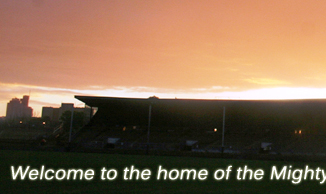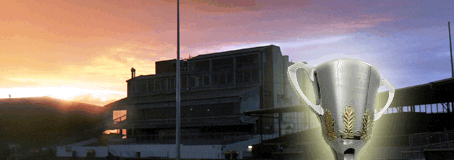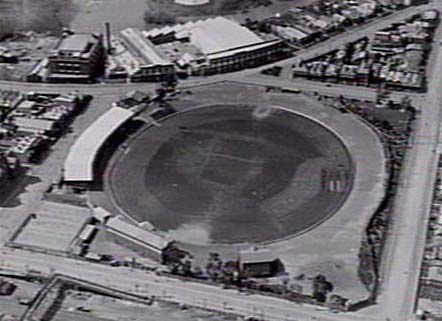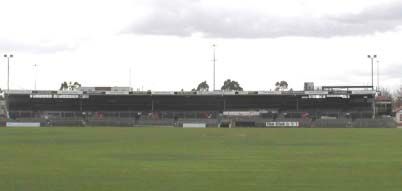

 |
||||||||||||||||||||||||||||||||||||||||||
|
|
||||||||||||||||||||||||||||||||||||||||||
|
In 1929 the Collingwood Football Club had reached the heaight of it's powers. The Jack Ryder Stand, named after the Australian and Collingwood cricketer, was built ahead of schedule and ready for round one of the 1929 season. The new stand replaced replace the old Smokers' Stand or 'Cowsheds'. Built by local unempolyed men and funded partly from the Government Unemployed Relief Fund. The council had pushed for the new Stand to be built as a window of opportunity had opened up for it to be funded from other sources. The depression was hitting Collingwood very hard and there was an ample supply of ably bodied unemployed young men willing to step up. The Magpies had captured back to back premierships in '27 and '28 and the mood was very boyant around Lulie Street as the Pies preparted for the new year with a magnificent new grand stand. On field the 'Machine Team' was unstoppable and completed the home and away season undefeated. No other team has done acheived in the 111 seasons of league football that has been played. Fans would flock to Victoria Park to watch the likes of the Coventry and Collier brothers, Dibbs, Chesswas, Libbis, Rumney, Beveridge, Lauder, Harris, et all, play and the ground was crying out for better facilities anyway.
It was dissected by a wire fence from top to bottom, with one third of the stand allocated to the cricket club, and the remaining two thirds to the football club. The cricket club was responsible for naming the new facility after Jack Ryder, a Collingwood Cricket Club player, and Australian test captain. The football club sought to utilise undercroft space in the Ryder Stand, adjoining the cricket portion, for new clubrooms. The embankment around the ground was extended again. Urinals abutting Abbott Street, just east of the intersection with Lulie Street, were roofed over. The ‘ornamental’ concrete wall along Turner and Bath Streets was constructed at about this time. It replaced an old picket fence.
BACK TO TOP |
|
|
|
|
| Site Map |
 Jack Ryder Stand
Jack Ryder Stand

